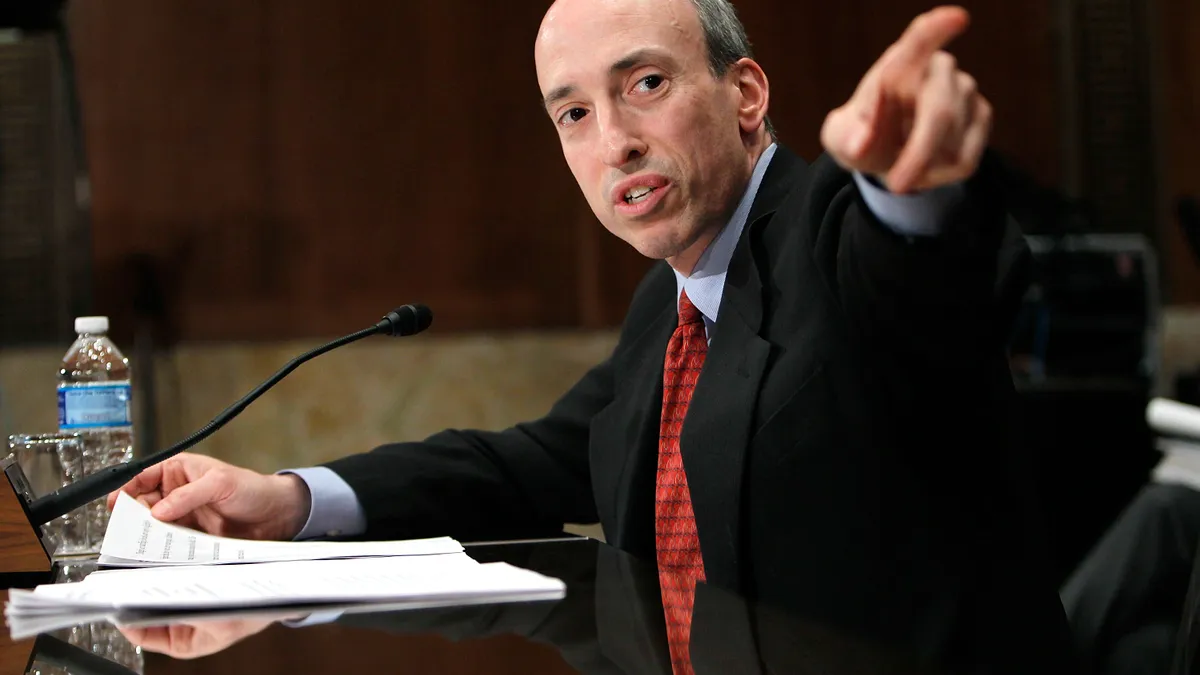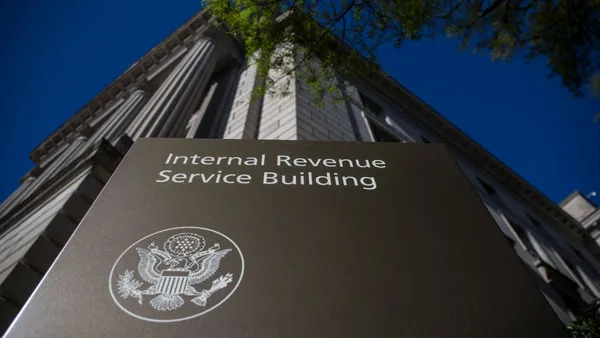Dive Brief:
- Securities and Exchange Commission (SEC) Chair Gary Gensler said on Thursday he has asked agency staff to recommend robust disclosure rules for special purpose acquisition companies (SPACs), warning that “SPAC sponsors generate significant dilution and costs for investors.”
- “We can do more to strengthen SPAC disclosures,” said Gensler, adding that he has directed agency staff “to look closely at each stage of the SPAC process to ensure that all investors are being protected.”
- The SEC chief said he has asked for draft rules “to elicit enhanced disclosures” as well as “analysis to better understand how investors are advantaged or disadvantaged by SPAC transactions.”
Dive Insight:
Gensler spoke to the SEC’s Investor Advisory Committee (IAC) before it unanimously approved an eight-page report urging the agency to “regulate SPACs more intensively by exercising enhanced focus and stricter enforcement of existing disclosure rules.”
“SPACs by their very nature are rife with conflicts of interest which must be disclosed to potential investors,” according to the panel, which was created under the Dodd-Frank Act.
“Even when those conflicts are disclosed, their import may not be clear to an unsophisticated investor,” the IAC said. While non-binding, the committee’s recommendations align with comments by Gensler since he became SEC leader in April.
Gensler cited a study finding “that costs built into the SPAC structure are subtle, opaque, and far higher than has been previously recognized.
“Although SPACs raise $10 per share from investors in their IPOs, by the time the median SPAC merges with a target, it holds just $6.67 in cash for each outstanding share,” the study says. “SPAC investors are bearing the cost of the dilution built into the SPAC structure, and in effect subsidizing the companies they bring public.”
A SPAC — or what Gensler called a “blank-check” IPO — offers private companies a quicker, cheaper alternative to traditional IPOs. A SPAC raises money by selling shares, which it lists on a stock exchange. It then merges with a private company.
SPAC IPOs accounted for more than half of $67 billion in IPO capital raised in the U.S. last year, the advisory committee said, citing Goldman Sachs data. During the first quarter of 2021, SPACs raised $87 billion of $125 billion in total IPO financing.
The SEC slowed the SPAC market in April when staff accountants released a memo saying that warrants attached to SPAC shares should be treated as liabilities rather than as equity.
The number of SPAC IPOs plunged 87% from April through June compared with the first quarter of 2021, according to FactSet. Thirty-nine SPACs raised just $6.8 billion during the second quarter compared with 292 that raised $92.3 billion during the first three months of 2021.
The SEC advisory committee recommends that SPACs be required to:
- describe the role of its sponsor (including “insiders or affiliates such as celebrity sponsors/advisors”), their “expertise and capital contributions,” and any potential conflicts of interest, according to the advisory committee;
- enable investors to gauge risks by providing “plain English” disclosure about stages in the SPAC process, including the “promote” to be paid to sponsors and the impact on dilution of shares and;
- detail “the mechanics and timeline of the SPAC process,” including a description of the asset to be purchased, events required during the next two years for the asset to appreciate and the shareholder approval process at the time of de-SPAC.
The committee says the SEC should require disclosure by SPACs on the terms for raising any additional funding, the “competitive pressures and risks” in finding and pricing appropriate targets, and “the minimum pre-de-SPAC diligence the sponsor will commit” in reviewing a target company’s accounting practices.
While detailing eight ways to strengthen disclosure requirements, the panel also urges the SEC to advance the public interest and “promote investor protection” by providing “an analysis of the players in the various SPAC stages, their compensation and their incentives.”
"I hope that others will join me in calling on the SEC to treat this recommendation as a floor, not a ceiling, for how the SEC should strengthen the regulatory framework,” said Leslie Van Buskirk, a committee member and administrator for the division of securities at the Wisconsin Department of Financial Institutions.
The advisory committee includes representatives from retail and institutional investors, including those who reflect the interests of mutual funds, pension funds and investment companies. Its membership also includes an advocate for senior citizens and a representative from state securities commissions.












